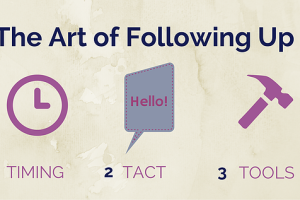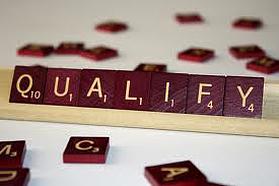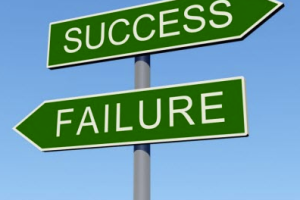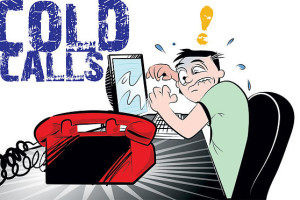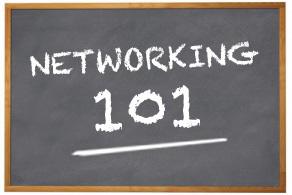Conferences are awesome learning opportunities. Most are carefully crafted to bring top industry leaders and up-and-coming business professionals together for several days of instruction and fellowship—all in an environment that hopefully serves as a much-needed “getaway” for participants and faculty alike.
Smart salesmen save up (or score free passes), to attend these sorts of events, treating them like working vacations. They look to grow their business strategies while simultaneously taking a break from the demands of their everyday lives in the start-up world.
One thing that not all attendees appreciate, however, is the importance of using these conferences to build social capital. Veteran conference-goers will tell you that highly successful events are not necessarily the ones that draw all the best speakers and exhibitors; they’re the ones that offer the best opportunities to forge new relationships and strengthen existing ones.
Bearing that in mind, if you’ve been to as many as have lately you start to take scan the room.
Let’s talk about five people you’ll want to spend your time getting to know at your next conference.
The Person You’ve Arranged to Meet Ahead of Time
Look it’s no surprise that if you’re in the sales game, homework is expected. If you want to succeed, you simply cant count on finding the perfect opportunity to approach a key individual—particularly if it’s a high-profile speaker or an exhibitor who may have a full schedule throughout the day.
Call or email a few weeks in advance to schedule a time to meet for coffee, a meal, or a drink,” “Do not hope to ‘run into them,’ as your paths might not cross at a time when you can spend quality time together.” It’s very good advice.
If you know that someone you really, really want to connect with is going to be there, it never hurts to make an effort to set up a little one-on-one time. Depending on who the person is, he or she may not be so obliging as to set up a lunch meeting, but chances are good that your courtesy will at least earn you an invitation to drop by at a particular place and time for 10-15 minutes of that person’s undivided attention.
Make the most of that time; but go prepared, with the primary purpose of kindling a meaningful relationship that you can draw upon for future interactions by phone or email.
The Person Sitting Next to You
Unless you’ve made arrangements to visit with one of them in advance, it’s generally wise to resist flocking to the major speakers and highly respected industry leaders.
You should attend their workshops and take notes, of course; but you should also bear in mind that these individuals are likely to be swamped with business cards by the end of the day, and it will be all but impossible for even the most charitable of them to realistically recall much about you later on.
Your time will be far better spent getting to know your peers—the people sitting next to you during workshops, waiting in line with you at the coffee bar, loitering about in the lobby between sessions. Some of them will be a lot like you; others will be nothing like you. Some will be just getting started in their careers; others will be established pros. Some will be potential allies; others will be competitors. No matter who they are, they have the potential to become valuable links in your social network—provided you take the time to strike up a conversation, exchange contact information, and actually follow up afterward.
It may just be me but I like tto arrive early for events… it tends to give me a better opportunity to locate those who “don’t have conversation partners yet. If you can seek out other conversationalists who are apparently having a good time and eager to meet new people that’s a bonus as these individuals expect to get a lot out of their conference experience, and that speaks well of their personal attitude and professional competence.
The Person Who’s Not Buried in Technology
We all know its about smartphones and tablets at conferences, but please, use them with great discretion, preferably as little as possible.
When your face is buried in a phone it tells others that the really fascinating people are elsewhere and that the jerk on the phone is choosing email, text and social media over engaging in the moment.
Not only should you discipline yourself to put your technology away between workshops and mealtimes, but you should also get in the habit of scanning the room to determine who else might be looking for a conversation partner instead of a chance to slip away and check in on personal matters.
This is important, and it applies to conference faculty and participants alike. Vital as our mobile technology may be to our sales lifestyles, it creates serious obstacles to meaningful social interaction at a face-to-face networking event. If someone’s eyes are glued to her screen, chances are she’s not open to what you have to say right now; so look for a pair of eyes waiting to connect with another human being instead.
The Person Who ISN’T Trying to Sell You Something
The dream conference scenario for any salesman is casually bumping into a potential customer or investor who, in the course of a serendipitous hallway conversation, provides an opportunity for a well-timed sales pitch.
Such occasions are extremely rare, of course, but that doesn’t seem to stop a number of people from attending these conferences seemingly for the sole purpose of pitching as many warm bodies as possible.
These individuals want to draw a financial return on the cost of their registration, and they’ll likely consider their time and effort at the conference wasted unless they go home with a briefcase full of hot new sales or funding leads.
Unfortunately, they’re bringing the wrong attitude, and they’re actually burning more bridges than they’re building. You have to remember that your goal is not to sell anything. It’s to connect with another human being, see if there is anything you can offer them and if it makes sense, and put yourself in a position to follow up.
Stay clear of these guys; they’ll monopolize your time, leaving little or no room for a bilateral conversation. Accept their business cards if you must, but then politely excuse yourself and find someone who would rather talk about something you can both get excited about—like recent industry news.
The Person Who Stays for Cocktail Hour
Let’s be honest. A lot of us attend conferences for a combination of business and pleasure. The same goes for most of the keynote speakers and workshop facilitators. At the point when the “business” of the day is over and everyone’s ready to unwind, wise conference-goers head to the local lounges and coffee shops to seize opportunities for meaningful connections.
The best relationships are formed at night – everyone’s jammed up and ready to shared experiences… Maximize this time.
It’s better to sleep in the next morning and skip a few lectures than to miss the evening festivities. Getting to know a speaker or industry authority is far easier in the casual, non-intimidating environment of a cocktail lounge than in the highly structured and fast-paced environment of the conference hall.
It may be a poor venue for a sophisticated concept presentation, but it’s a great place to glean veteran advice and forge enduring connections with influential individuals.
Relax and let the conversations flow naturally. You can always follow up on business matters at a later time—and you may very well be on a first-name basis by that time.
If you’re going to shell out the money to attend a business conference, then it pays to spend time with the kinds of people who will add genuine value to your social portfolio.
You may or may not walk away with any hot new business leads as a result of these conversations, but that’s okay. You’ve still built upon an asset that has the potential to yield handsome dividends in the future, and that’s what conference networking is all about.


